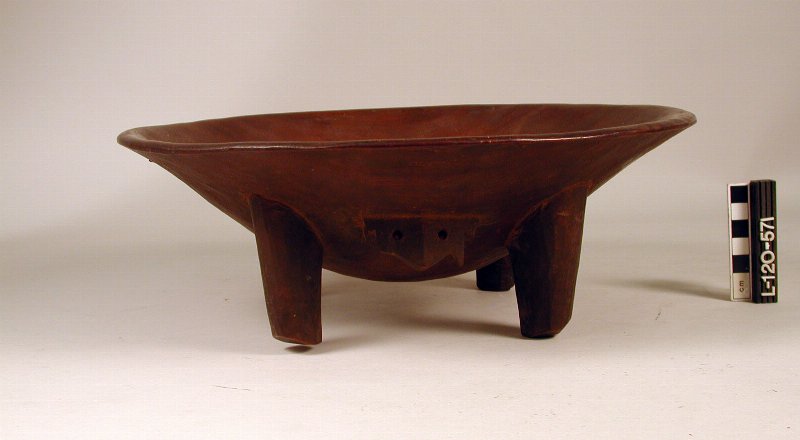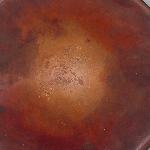Kava Bowl
97-120-571
From: Samoa Islands | Upolu
Curatorial Section: Oceanian
| Object Number | 97-120-571 |
| Current Location | Collections Storage |
| Culture | Samoan |
| Provenience | Samoa Islands | Upolu |
| Date Made | ca. 1840 |
| Section | Oceanian |
| Materials | Wood |
| Technique | Carved |
| Description | Round, shallow wood bowl with four legs. Triangular lug with two holes for a hanging cord. Light-colored patina (stain) on bottom of inside, from use. Small rim crack with native plant fiber mend. Written in ink on inside: "Ava Bowl Upolu." Kava (the crushed leaves of a pepper plant, Piper methysticum, mixed with water, was and is ceremonially consumed in many parts of Melanesia, Polynesia and Micronesia. Ritual surrounding kava consumption includes placement of the kava bowl in relation to participants, seating of participants, and order in which the drink is served to them. Modern Samoan kava bowls have many legs, but early examples like this one have only four. |
| Height | 11 cm |
| Width | 31.2 cm |
| Outside Diameter | 31.2 cm |
| Credit Line | Gift of the Academy of Natural Sciences of Philadelphia, 1997 |
| Other Number | L-120-571 - Old Museum Number | 10602 - ANSP Number |
Report problems and issues to digitalmedia@pennmuseum.org.





